MENISCUS TEARS AND TREATING MY OWN KNEE WITH ACUPUNCTURE
Photo by Andrea Piacquadio from Pexels
Last week I fell off my bicycle while standing still (I call this my Joe Biden move!) While I thought I had a mild contusion of my knee, knowing the scrape would eventually heal, I wasn’t prepared for the pain I experienced nearly 2 weeks later. I continued to ride my bike all week, on a weakened knee. After three days of intense pain, I decided to just give myself a treatment, and 24 hours later, I’m 90% better! Acupuncture works!
Meniscus tears are a common knee injury that can affect athletes, active individuals, and people with degenerative joint conditions alike. In Western medicine, treatment options typically involve physical therapy, pain management, and in severe cases, surgery. However, Acupuncture offers an alternative, non-invasive treatment option.
Acupuncture has long been used to treat musculoskeletal injuries by promoting healing, reducing pain, and improving function. This article explores how acupuncture can be used to effectively treat meniscus tears and aid in the recovery process.
WHAT IS A MENISCUS TEAR?
The meniscus is a crescent-shaped piece of cartilage that acts as a cushion between the femur (thighbone) and the tibia (shinbone). Each knee has two menisci – the medial meniscus on the inner side and the lateral meniscus on the outer side. These structures help absorb shock, stabilize the knee joint, and distribute weight evenly across the joint during movement.
A meniscus tear occurs when this cartilage is torn, usually due to sudden twisting, pivoting, or forceful movements. Meniscus tears can also develop gradually due to wear and tear, especially in older individuals with degenerative joint conditions like osteoarthritis. Common symptoms of a meniscus tear include:
• Pain, particularly along the inner or outer sides of the knee
• Swelling and stiffness
• Difficulty bending or straightening the knee
• A “locking” sensation, where the knee becomes stuck in a certain position
• Instability or weakness in the knee joint
HOW CAN ACUPUNCTURE HELP?
For meniscus tears, acupuncture works by:
1. Reducing Pain
Acupuncture has been shown to stimulate the release of endorphins, the body’s natural painkillers, as well as serotonin and other neurotransmitters that help regulate pain perception. By targeting specific acupoints, acupuncture helps to reduce pain, both locally at the knee and systemically.
2. Anti-inflammatory
By helping to reduce swelling and inflammation around the torn meniscus. Inflammation is a common response to injury and can prolong recovery if not properly managed. Acupuncture helps bring the body back to a state of balance, allowing for better healing.
3. Improving Circulation
A key benefit of acupuncture is its ability to improve circulation. of both Qi and Blood in the injured area. When a meniscus is torn, the area around the knee can become congested with stagnant fluids and blood, slowing the healing process.
Improved circulation also ensures that nutrients and oxygen are delivered to the injured meniscus, while waste products and toxins are removed. This speeds up recovery and helps prevent further damage to the cartilage and surrounding tissues.
4. Restoring Joint Mobility
After a meniscus tear, patients often experience stiffness and limited range of motion in the knee. Acupuncture and electric stimulation, helps to relax the muscles and improve range of motion.
5. Supporting Tissue Regeneration
Acupuncture encourages the regeneration of damaged tissues, including cartilage and connective tissues in the knee joint. This is particularly important for chronic meniscus injuries or degenerative tears, where the cartilage is worn down over time. Taking a good glucosamine supplement will also help.
INTEGRATING ACUPUNCTURE WITH CONVENTIONAL TREATMENTS
While acupuncture is highly beneficial for treating meniscus tears, it can also be used alongside conventional treatments such as physical therapy, rest, and, in some cases, surgery. Acupuncture complements these therapies by reducing pain and inflammation, accelerating the healing process, and improving the body’s overall ability to recover.
For patients recovering from knee surgery (such as a meniscus repair or meniscectomy), acupuncture can help reduce post-surgical pain, promote faster tissue healing, and prevent the formation of scar tissue, which can limit mobility.
CASE STUDIES AND RESEARCH
Several studies support the use of acupuncture for knee injuries, including meniscus tears. Research has shown that acupuncture can reduce pain, improve joint function, and enhance overall recovery for patients with knee osteoarthritis, which often involves meniscal damage.
• A study published in the journal Arthritis & Rheumatism found that acupuncture significantly reduced pain and improved physical function in patients with knee osteoarthritis, with benefits persisting for several weeks after treatment.
• Another study in The American Journal of Chinese Medicine demonstrated that acupuncture reduced knee pain and improved mobility in patients with degenerative meniscus injuries, even when conventional treatments had limited success.
Meniscus tears can be a painful and debilitating condition, but acupuncture offers a holistic and effective approach to healing. By reducing pain, improving circulation, promoting tissue repair, and restoring joint mobility, acupuncture can significantly aid in the recovery process for meniscus tears. Whether used as a stand-alone treatment or in combination with conventional therapies, acupuncture provides a safe, natural, and non-invasive option for those seeking relief from knee pain and injury.

